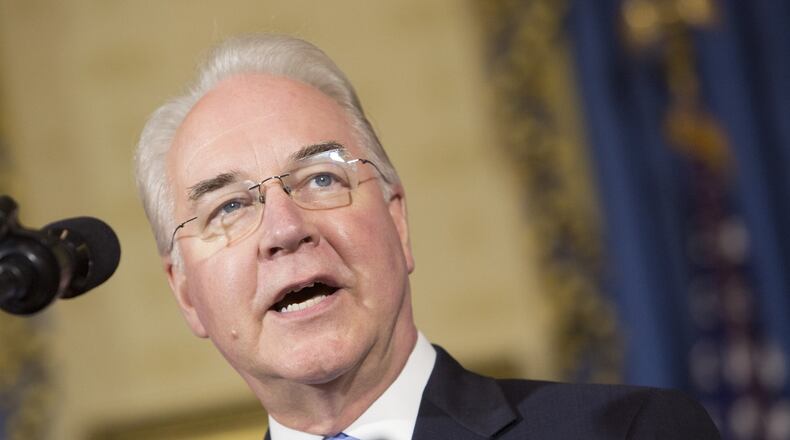In a letter she just received, Trinh Pham saw the yearly funding for her organization’s work guiding Obamacare enrollees drop from about $150,000 to roughly $10,000. Starting right now.
“I’m shocked,” she said. She’s not the only one.
Her organization, Boat People SOS-Atlanta, is one of a handful that employs “navigators” to educate Georgians on signing up for health insurance on the Affordable Care Act’s exchange market. After being told months ago to plan for a stable funding level, they say, they suddenly — on Aug. 31, a day before grants were expected — received notice that funding would decline. Then this week the actual numbers came out.
“We already prepare for the new enrolment (which starts Nov. 1),” Pham said, describing the dissonant news. “We know that our continuation will be approved, we’re ready, we actually just added one more navigator on staff. I actually don’t know what to do right now.”
On a policy level, the move is not a surprise following the election of President Donald Trump and his selection of Tom Price as health secretary. Both are deeply skeptical of the 2010 health care law, and the law itself invests tremendous amounts of leverage in individual decisions by the secretary.
This is one of many choices that Price can make, decisions that may have an impact on the law’s success or failure without resorting to legislation. On Aug. 31, his department, Health and Human Services, announced that it would gut funding for enrollment education from more than $100 million last year down to $10 million this year. In addition, the announcement said it would change the department’s funding for the navigators, which has been at $62.5 million nationwide. Only now the navigator organizations are learning by just how much.
In the announcement, the department said the money had previously been spent ineffectively, and that it would now be targeted in more effective ways. It noted that sign-ups of people brand-new to Obamacare had declined drastically, and it asserted that the $62.5 million-funded enrollment by navigators of 81,400 people. GOP health care officials have called out one figure in particular, that 17 of the nation’s navigators had enrolled only 100 people each, thus costing about $5,000 per enrollee.
Advocacy groups question those figures, noting that people may get help from a navigator that is critical but then finish their sign-up somewhere else. They also criticized the new metrics, saying that judging them solely by the number of people they enroll changes their goal from correctly educating people on how the system works — and finding the best option for them — to enrolling people in Obamacare.
No one knows for sure what the impact of the cuts will be. But many experts, and the navigators, say fewer people will understand their options and that enrollment will decline.
“The rural people will get left behind” because that’s where it’s most expensive to travel and where the ratio of people reached per visit starts to decline, said Sarah Sessoms, who runs Georgia’s largest navigator organization, Insure Georgia, with about 42 navigators. “They really will. The people who are suffering already because of the Georgia landscape of the Georgia insurance market, in those areas, will not get help.”
Sessoms spent Friday in Washington at a previously planned meeting of navigator organizations, and the conversation turned to the stunning letters. “The funny thing is we were all trying to figure out the rubric,” she said. “They said it was going to be based on enrollment metrics. We met them.”
Insure Georgia’s funding will be cut from $2.2 million to about $329,000, she said, so it will look — quickly — for alternative funding, but layoffs seem inevitable.
“Unless we can find a bit of funding in other places, I don’t see any other way of going from around $2.2 million to $300,000,” she said. “We run a very lean organization. There’s not a lot of fat.”
The department said it would now focus on digital messaging, which it says is most effective. Surveys, however, show rural areas tend to lag behind in digital infrastructure.
The Atlanta Journal-Constitution reached out to the Trump administration for figures and a response to the criticism. Representatives in Atlanta referred questions to Washington, where officials did not respond.
Bill Custer, a health economist at Georgia State University, said the effect on the market overall was also important.
“The people most likely affected, the people now less likely to sign up, tend to be healthier individuals,” Custer said.
Those are the cheaper ones to insure.
“What happens,” he said, “is if you don’t get enough healthy individuals, premiums go up.”
Custer also noted that if a navigator’s goal is simply to enroll people in Obamacare exchange plans, they might not tell someone whether they might find a cheaper plan off the exchange. Georgia navigators said they knew of no organizations that would do that.
About the Author
Keep Reading
The Latest
Featured




